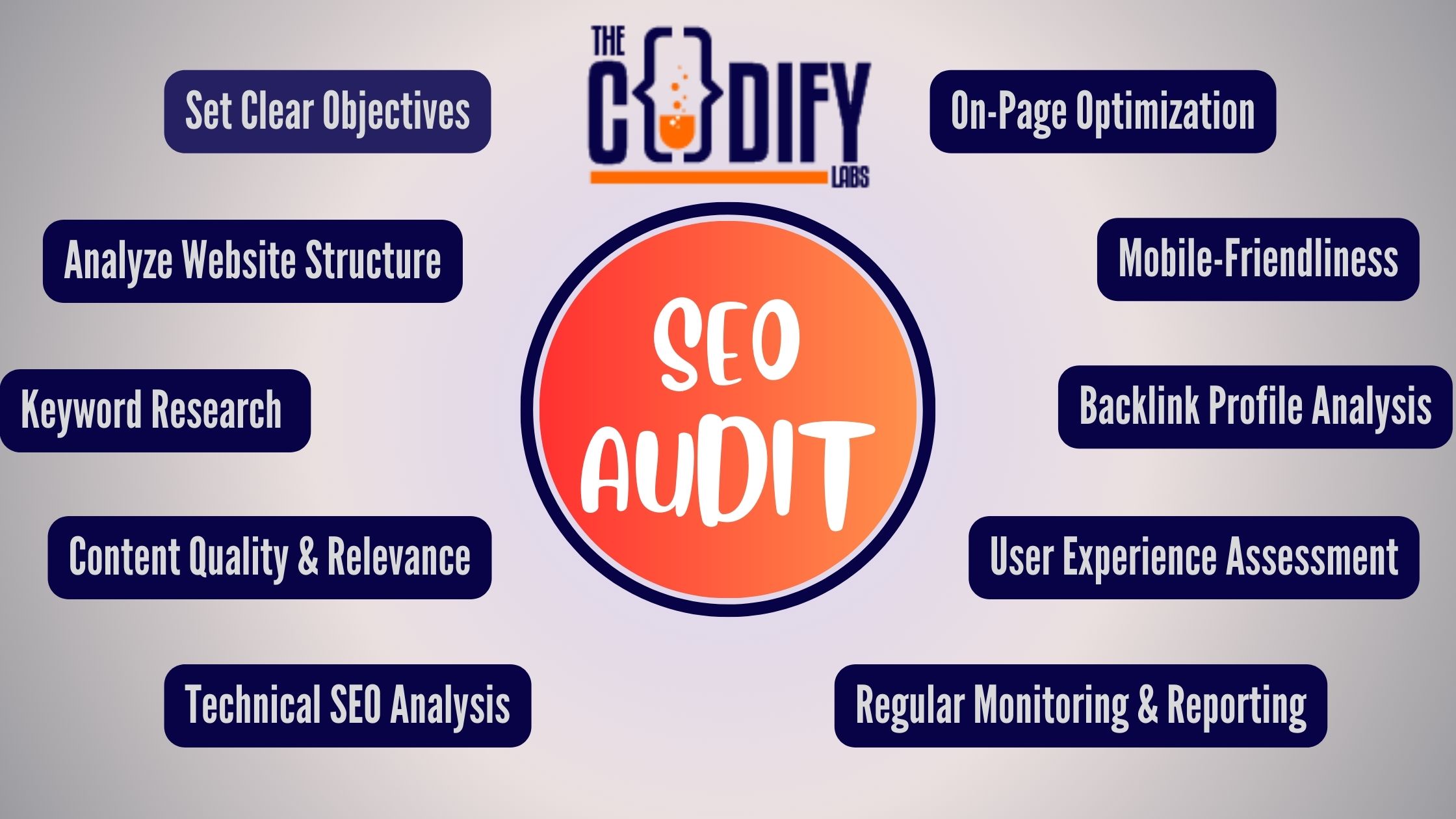10 Essential Tips for Conducting an Effective SEO Audit
Introduction:
In the rapidly evolving digital landscape, search engine optimization (SEO) remains crucial for online success. An SEO audit is a fundamental process that allows businesses to evaluate and enhance their website’s performance in search engine rankings. By conducting a comprehensive SEO audit, you can identify potential issues, optimize your site’s visibility, and drive targeted traffic. In this article, we will explore ten essential tips for performing an effective SEO audit.

Here are 10 tips for performing a successful SEO audit
Set Clear Objectives:
Before diving into an SEO audit, define your objectives clearly. Determine the key areas you want to focus on, such as improving organic rankings, enhancing user experience, or optimizing technical aspects. Setting specific goals will help you prioritize your efforts and measure the success of your audit.
Analyze Website Structure:
Evaluate your website’s structure and navigation to ensure it is user-friendly and search engine-friendly. Check for broken links, excessive redirects, and indexation issues. Optimize your website’s architecture by organizing content logically, using descriptive URLs, and implementing breadcrumbs for easy navigation.

Keyword Research and Optimization:
Perform thorough keyword research to identify relevant terms and phrases that align with your business goals. Analyze your website’s existing keyword usage and ensure they are strategically incorporated into page titles, headings, meta descriptions, and content. Optimize for long-tail keywords to capture more targeted traffic.
Content Quality and Relevance:
Assess the quality and relevance of your website’s content. Ensure that it provides value to your target audience and aligns with their search intent. Identify and update outdated or thin content, and incorporate relevant keywords naturally. Optimize content length, readability, and engagement factors such as images, videos, and infographics.
Technical SEO Analysis:
Conduct a comprehensive technical SEO analysis to identify and fix underlying issues that may hinder your website’s performance. Check for crawl errors, duplicate content, XML sitemap accuracy, and robots.txt configuration. Optimize your website’s loading speed, mobile responsiveness, and SSL certificate.

On-Page Optimization:
Review and optimize individual web pages for maximum SEO impact. Analyze meta tags, headers, and URL structures to ensure they are optimized for search engines and users. Implement schema markup to enhance your website’s visibility in search results. Improve internal linking to establish a logical information hierarchy.
Mobile-Friendliness:
Given the increasing importance of mobile devices, it is crucial to ensure your website is mobile-friendly. Verify that your website adapts seamlessly to different screen sizes, loads quickly, and provides a smooth user experience on mobile devices. Mobile optimization is critical for both user satisfaction and search engine rankings.
Backlink Profile Analysis:
Examine your website’s backlink profile to evaluate the quality and quantity of inbound links. Identify potentially harmful or spammy backlinks and take necessary steps to disavow or remove them. Focus on building high-quality backlinks from authoritative and relevant websites to improve your site’s authority and rankings.

User Experience (UX) Assessment:
Analyze the overall user experience of your website, as it significantly impacts SEO. Ensure your website is easy to navigate, with intuitive menus, clear calls-to-action, and engaging content. Optimize page load times, minimize intrusive pop-ups, and create a seamless browsing experience across all devices.
Regular Monitoring and Reporting:
Lastly, an SEO audit is an ongoing process. Continuously monitor your website’s performance using analytics tools and track key metrics such as organic traffic, keyword rankings, bounce rates, and conversion rates. Generate regular reports to evaluate the effectiveness of your SEO strategies and identify areas for improvement.

Conclusion:
Performing a thorough SEO audit is essential to stay competitive in the digital landscape. Contact the Best SEO Company in Canada to improve and optimize your website’s SEO performance. Remember to set clear objectives, analyze website structure, conduct keyword research, optimize content, address technical SEO issues, focus on on-page optimization, ensure mobile-friendliness, analyze your backlink profile, assess user experience, and regularly monitor and report on your SEO efforts.
By taking a comprehensive approach to your SEO audit and implementing these tips, you can uncover opportunities for growth, enhance your website’s visibility in search engine results, and ultimately drive more targeted organic traffic to your site. Stay proactive in monitoring and adapting your SEO strategies to keep up with evolving algorithms and user behavior. A well-executed SEO audit will serve as the foundation for an effective and successful online presence. By implementing the ten tips outlined in this article, you can identify.

